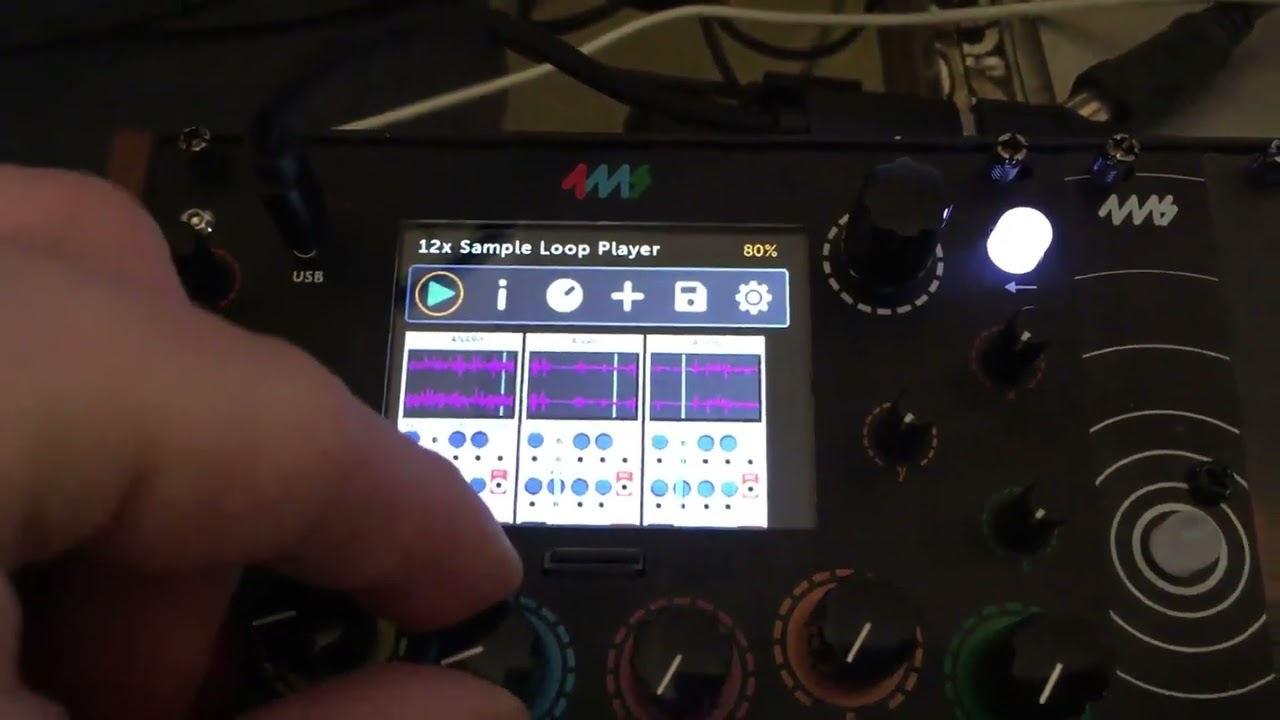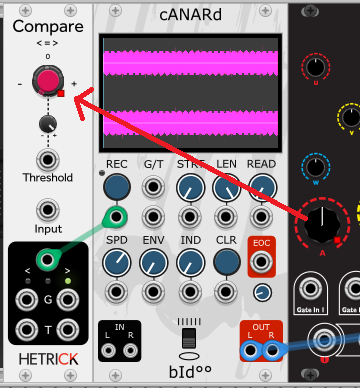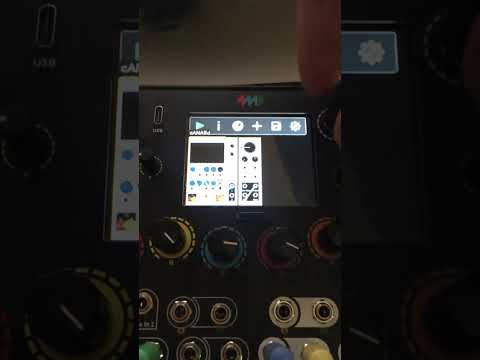12x Sample Loop Player.yml (23.3 KB)
12x sample loop player.vcv (3.3 KB)
sloppy demo (not sure why he left channel is a little fuzzed):
why settle for 8 loops, when you can have 12! each loop is mapped to a knob. when the knob goes >0 it triggers the loop. with all 12 loops playing, the cpu maxes at around 85%
requirements:
latest beta dev firmware and plugins:
https://metamodule.info/downloads
system ideally set to 48/128 to 512*
your .wav files should be 48/16 and not exceed 43.5s in length (the module resamples them from 48khz up to 96khz, internally).
knob set 1
A vol+trigger for loop 1
B vol+trigger for loop 2
C vol+trigger for loop 3
D vol+trigger for loop 4
E vol+trigger for loop 5
F vol+trigger for loop 6
u vol+trigger for loop 7
v vol+trigger for loop 8
w vol+trigger for loop 9
x vol+trigger for loop 10
y vol+trigger for loop 11
z vol+trigger for loop 12
knob set 2
z = reverb mix
note: currently all canard sampler modules are set to loop (read knob = 1). if you don’t want the samples to loop, adjust the read (param 4) knob on the canard module to 0. you get ping-pong with 2.
note: if you wanted all samples to just trigger from a single knob (in the case that you have a bunch of beats or loops that need to properly sync to each other), you can just take the push output from the knob you want (knob A makes a good starter knob) and route that to the trigger (or gate, depending on if you want to be able to stop all loops at once) in on all remaining canard modules you wish to sync to the first.
also note: this patch can be very ram hungry. if you have a ton of modules loaded, and you try going for the max number of 12 samples at 43.5s each, you may run into freezing issues when you hit the play button. the patch only utilizes fundatmental vcv plugin, and bidoo so you might try unloaded others first. regardless, the patch usually takes about 1:10-1:20 seconds to load depending on how big all your samples are(that is from usb, can take longer from sdcard!). one easy way to quickly tell when it’s loaded is the cpu meter will appear in the top right. or if you have auto screen black out feature turned on in your user prefs (and set to a number like 1 minute or below), the screen will automatically black out once the patch starts playing.


